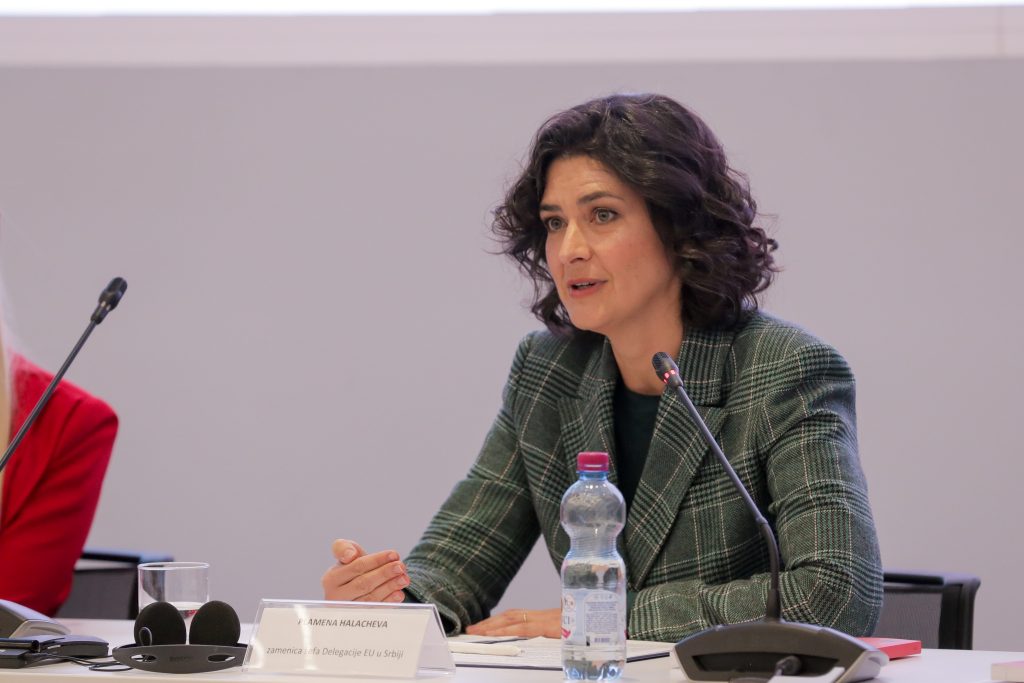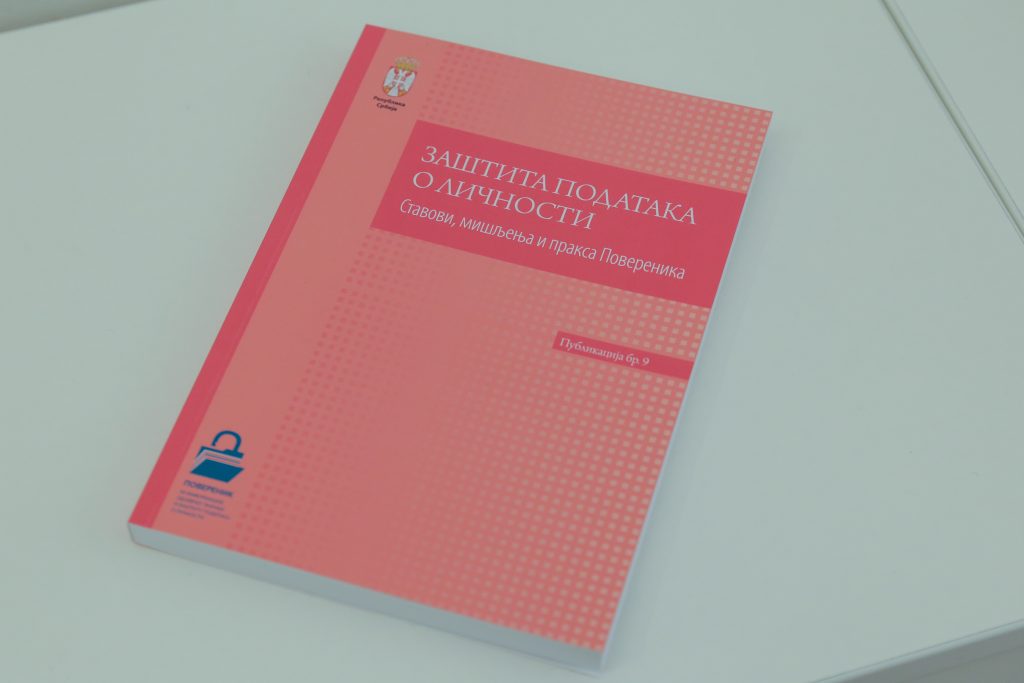Data Protection Day is marked every 28th January, to advance public awareness about the importance of personal data protection and to remind public authorities of their responsibility for protecting privacy as one of the fundamental rights.
The European Union will remain Serbia’s reliable partner in advancing data protection to make sure it meets the requirements of modern realities, said Plamena Halacheva, Deputy Head of Delegation of European Union in Serbia at the panel discussion held at the Serbian Chamber of Commerce. In this respect, she said, Cooperation with the Commissioner for Information of Public Importance and Protection of Personal Data and the Serbian civil society is essential.
She reminded that the EU is leading by example in this sphere, with the General Data Protection Regulation (GDPR) adopted in 2016, making protection of privacy and our data not only a fundamental right in the EU but also a legal obligation.
Along with contemporary challenges in data protection, such as the use of sophisticated technologies to massively collect and process personal data, the use of biometrics and growing use of Artificial Intelligence (AI), the EU is expected to adopt first ever AI Act early this year.
“This new and revolutionary – in many aspects – AI Act is geared towards creating a safe and innovation-friendly environment for all users and developers while ensuring full respect of fundamental rights and freedoms of all people within EU and beyond”, said deputy Head of EU Delegation.
Halacheva said that “there is no doubt that the data is ‘the oil’ for the digital economy” and that new rules offer possibilities for this to happen, allowing e-services to flourish further in the Digital Single Market and beyond, while enabling citizens, consumers and businesses to feel secure to exchange personal data.
“This is also valid for Serbia, where the businesses offering their services are interlinked with the EU market. Work on implementing the new legal standards and alignment of all relevant laws and practices remain crucial for making concrete impact in practice, including those identified through the Media Strategy as well. The impact of processing personal data needs to be addressed in every new legislation and make sure the rules are fully compliant with the national and European standards”, Halacheva said.
Commissioner for Information of Public Importance and Protection of Personal Data, Milan Marinović, stated that commissioners and similar institutions worldwide must collaborate to assist citizens in data protection, “which is more endangered today than ever.”
“A person who is known is more exposed than someone walking around without clothes in one of the busiest cities,” Marinović remarked.
He mentioned that the Commissioner’s institution was founded in 2004, the same year as Facebook. He added that the emergence of social networks generally led to large-scale data processing of billions of citizens worldwide, necessitating the adoption of regulations.
“We have to establish firm boundaries and direct development so that the risks are under strict control,” emphasized Marinović.
Carolina Hidea, Deputy Head of the OSCE Mission in Serbia, emphasized that privacy is a basic human right, but new challenges in that area arise due to the advancement of technology and the digital world.
“By protecting the data, we also protect the person behind it,” Hidea noted.
Todd Andrews, Acting Director of the USAID Mission in Serbia, assessed that all citizens today live in the digital world and depend on it in all areas of life. Consequently, citizens’ data are more exposed to abuse.
According to him, a “boom” is happening in Serbia in the IT sector, making data protection more complicated and complex.
“The work of trustees must keep up with the times, and their work is more important today than ever,” Andrews concluded.
About Privacy and data protection
Privacy and data protection have become increasingly significant in our everyday life, both in the private sphere and at work. The rights to privacy and data protection have long been recognised as fundamental rights, set out in article 7 and 8 of the EU Charter of Fundamental Rights.
Personal data is information relating to you or any identified or identifiable natural person displayed, handled, stored or accessed in a way that would make an individual directly or indirectly recognisable. Examples include a name, photo, birth date, ID number, phone number or e-mail address, and even characteristics if linked to a person, as well as data about behaviour, travel or shopping habits, profiles also on social media platforms.








